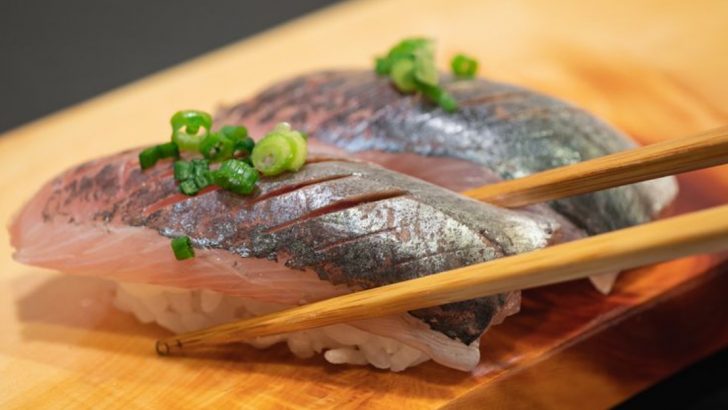Sushi night can be tricky if you don’t know which fish to pick. Some choices are sustainable and healthy, while others might harm the ocean or your body.
Making smart sushi picks helps our oceans stay healthy and keeps you safe from mercury and other toxins. Let’s explore which fish to enjoy and which to skip next time you’re at the sushi bar!
1. Fish To Avoid: Bluefin Tuna
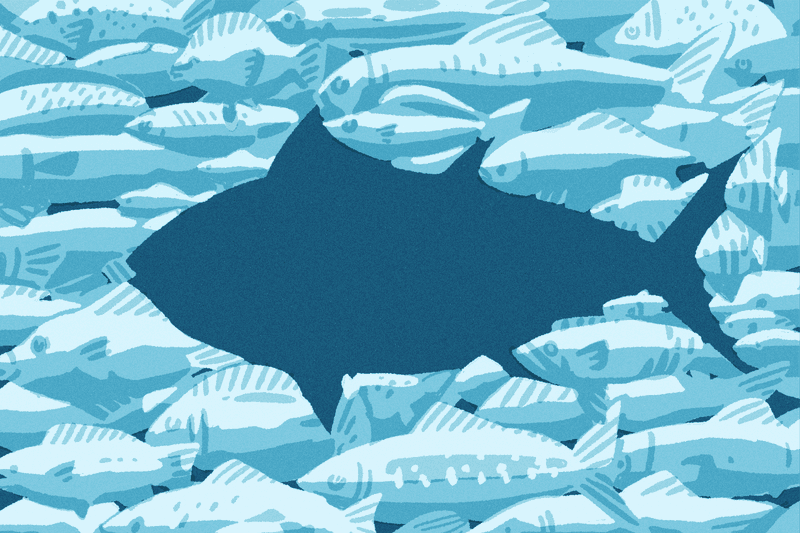
Critically endangered and struggling to survive in our oceans. Bluefin populations have dropped by 97% since the 1960s due to overfishing.
While delicious, this fish contains high mercury levels that can harm your nervous system. Choose alternatives that won’t empty the seas or fill your body with toxins.
2. Fish To Avoid: Swordfish
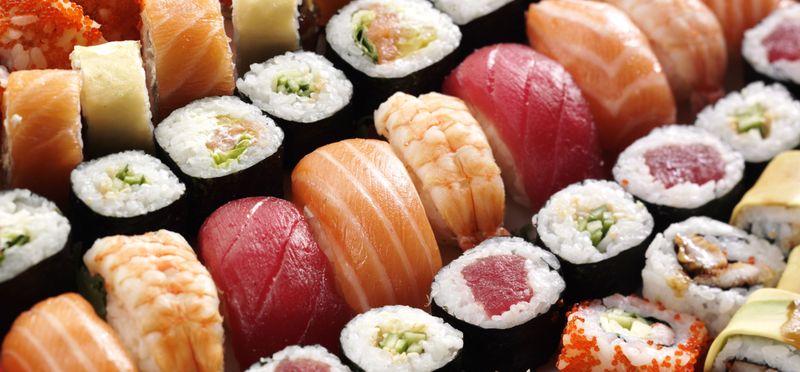
Top predator with dangerously high mercury levels. The FDA specifically warns pregnant women and children to avoid swordfish completely.
Swordfish can live up to 15 years, giving mercury plenty of time to build up in their flesh. The longer-lived and larger the fish, the more toxins it typically contains.
3. Fish To Avoid: Shark
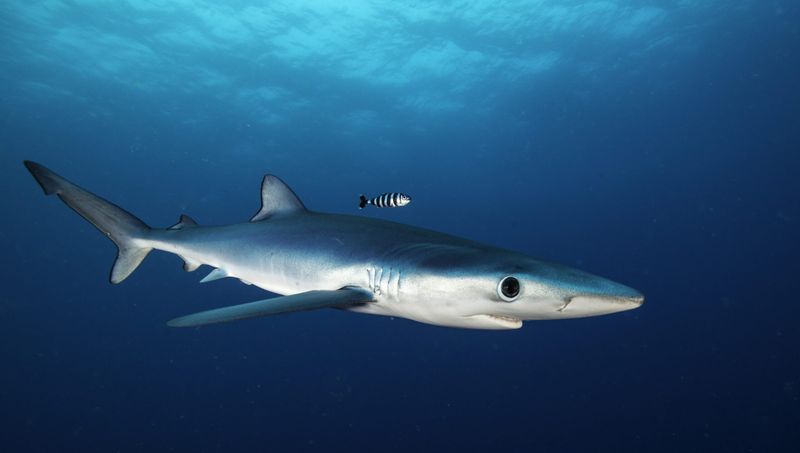
Shark populations worldwide face collapse from overfishing. Many shark species are caught just for their fins, with the rest wastefully discarded.
As apex predators, sharks contain extremely high mercury concentrations. Their slow reproduction rates make them especially vulnerable to extinction when overfished.
4. Fish To Avoid: Orange Roughy
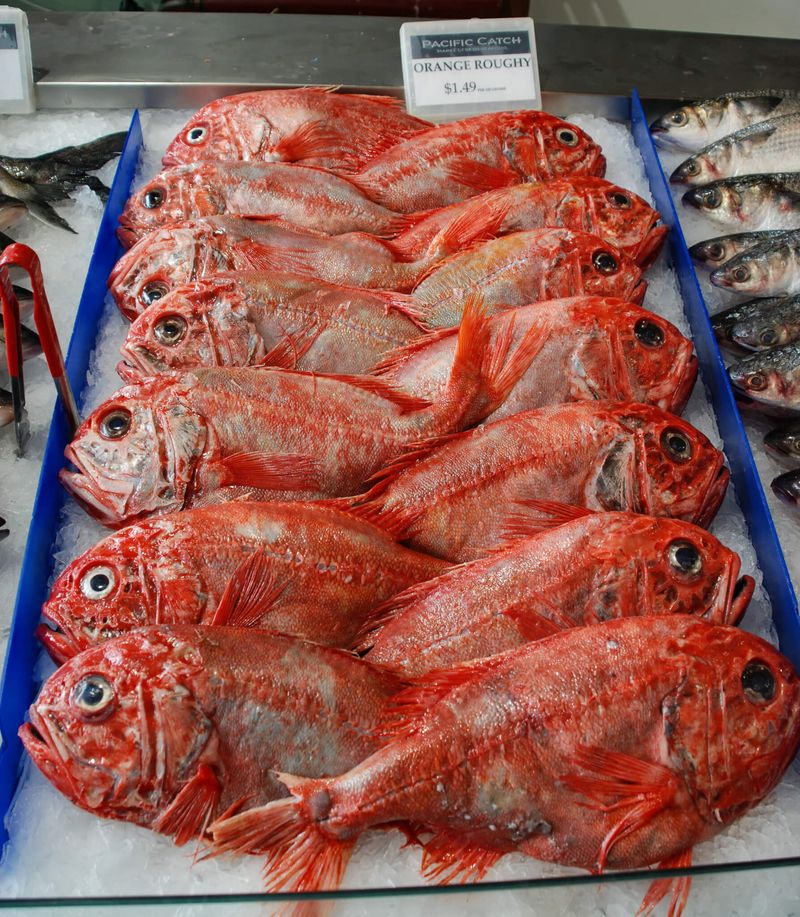
Lives up to 100 years and doesn’t reproduce until age 20! This slow growth makes orange roughy extremely vulnerable to overfishing.
Deep-sea trawling methods used to catch this fish destroy fragile ocean floor habitats. High mercury content adds another reason to skip this fish at the sushi counter.
5. Fish To Avoid: King Mackerel
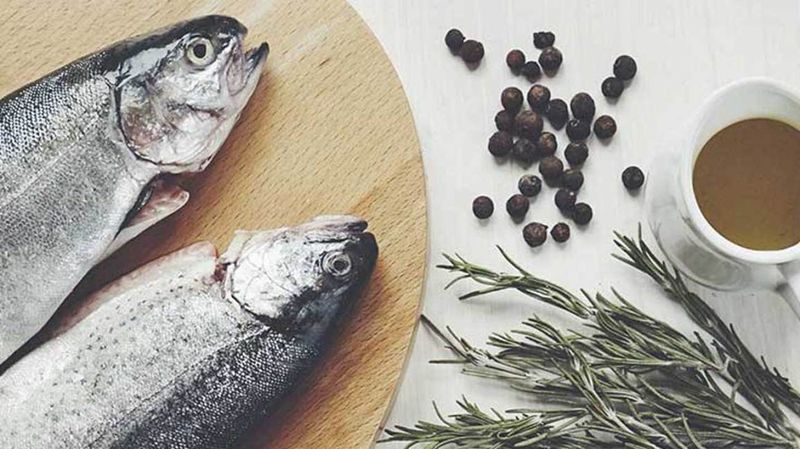
Contains mercury levels so high that the EPA warns everyone to avoid it. One serving can exceed your weekly mercury limit!
Often mislabeled as safer varieties at sushi restaurants. Ask questions about where your mackerel comes from, and choose Spanish or Atlantic mackerel instead.
6. Fish To Avoid: Farmed Eel (Unagi)

Wild eel populations have crashed by over 90% in recent decades. Baby eels are caught from the wild and raised in farms, further depleting natural stocks.
Farming practices often involve antibiotics and pesticides. Many eel farms also contribute to mangrove forest destruction, damaging crucial coastal ecosystems.
7. Fish To Avoid: Chilean Sea Bass
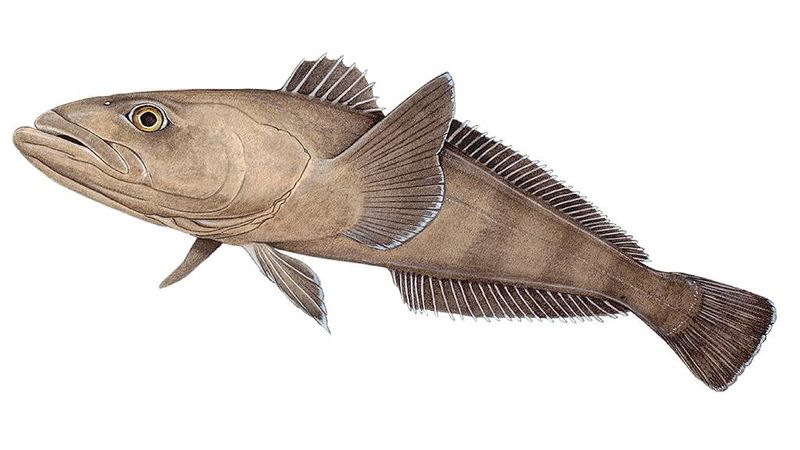
Actually named Patagonian toothfish – renamed to sound appetizing! Illegal fishing threatens this deep-sea species despite conservation efforts.
Takes 10 years to reach reproductive age, making population recovery difficult. Contains moderately high mercury levels that build up in your body over time.
8. Fish To Avoid: Imported Shrimp
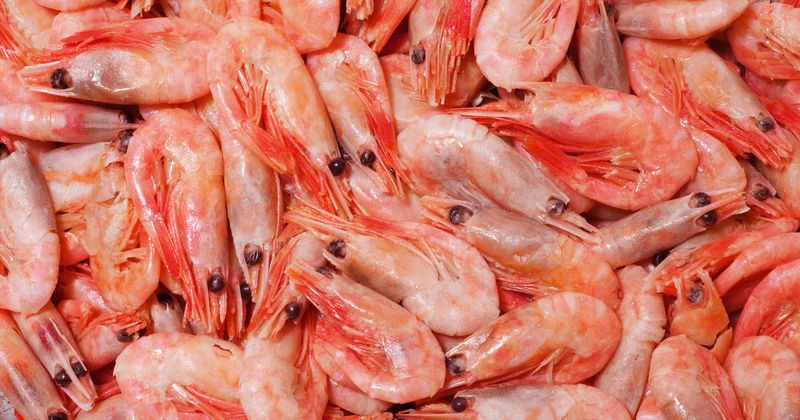
Farming methods often destroy mangrove forests that protect coastlines. Many overseas farms use antibiotics banned in the US due to health concerns.
For every pound of shrimp caught in the wild, up to 15 pounds of other sea creatures are accidentally killed. This “bycatch” includes endangered sea turtles and sharks.
9. Fish To Avoid: Octopus
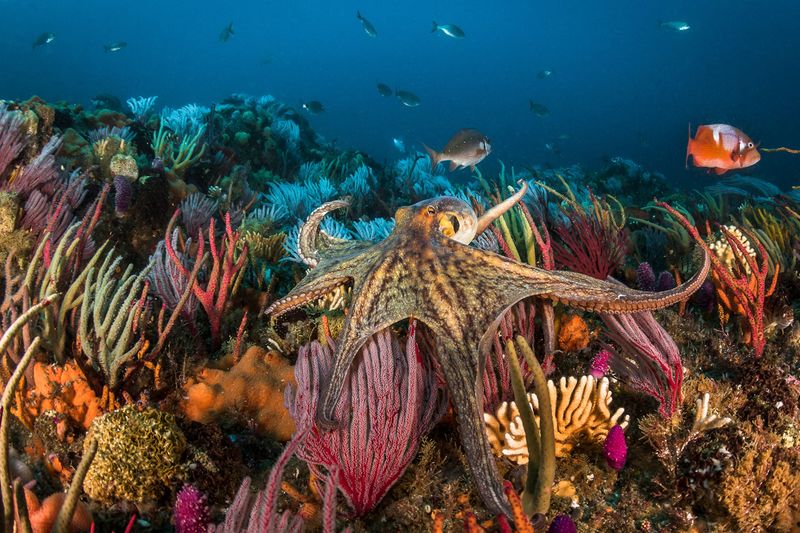
Highly intelligent creatures that use tools and solve complex puzzles. Scientists now recognize octopuses feel pain and distress similar to mammals.
Most octopus fishing methods are unregulated and wasteful. Their short lifespan (1-2 years) and complex breeding make them vulnerable to population collapse when overfished.
10. Fish To Enjoy: Salmon (Wild Alaskan)
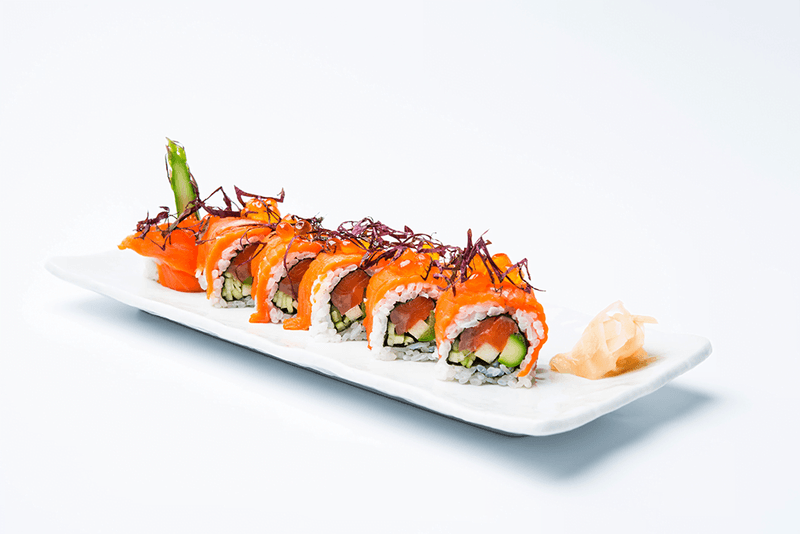
Alaska’s strict fishing regulations make this a sustainable seafood star. Wild salmon eat natural diets, giving them better flavor and nutrition than farmed varieties.
Rich in heart-healthy omega-3 fatty acids with relatively low mercury. The distinctive orange-pink flesh comes from their diet of krill and small crustaceans.
11. Fish To Enjoy: Arctic Char
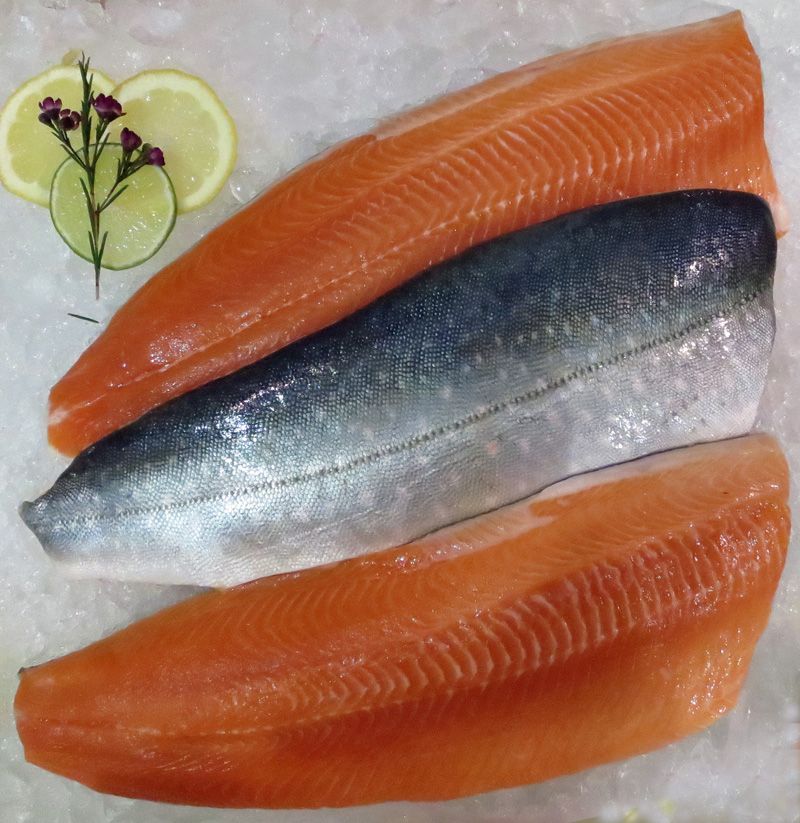
Tastes like a cross between salmon and trout with fewer environmental concerns. Farmed in closed systems that prevent pollution and disease spread.
Contains half the calories of salmon while delivering similar omega-3 benefits. Its mild flavor makes it perfect for sushi beginners who find stronger fish overwhelming.
12. Fish Tto Enjoy: Sardines
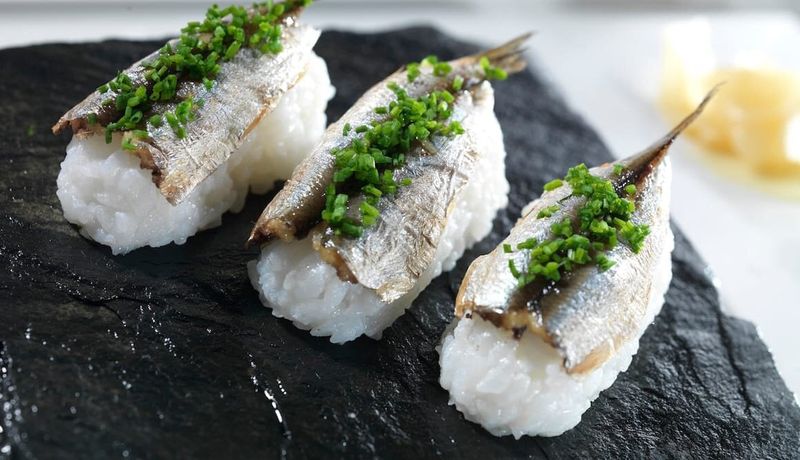
Small fish with big benefits! Reproduce quickly and mature fast, making them highly sustainable. Their small size means they contain minimal mercury compared to larger predatory fish.
Packed with protein, omega-3s, vitamin D, and calcium (if you eat the bones). Fresh sardines make surprisingly delicious sushi with a clean, mild flavor.
13. Fish To Enjoy: Albacore Tuna (US/Canada)
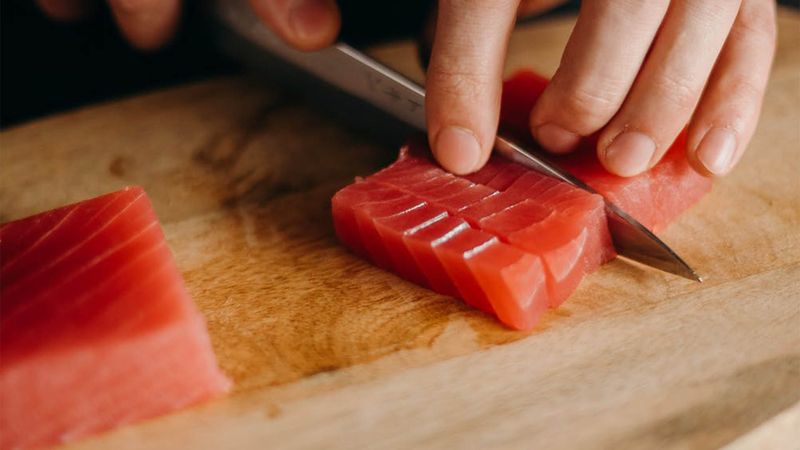
Younger, smaller tuna caught using sustainable pole-and-line methods. This fishing technique prevents bycatch of dolphins, turtles, and other marine life.
Contains less mercury than larger tuna species. The white flesh has a mild, clean flavor that pairs beautifully with wasabi and soy sauce.
14. Fish To Enjoy: Mackerel (Atlantic)
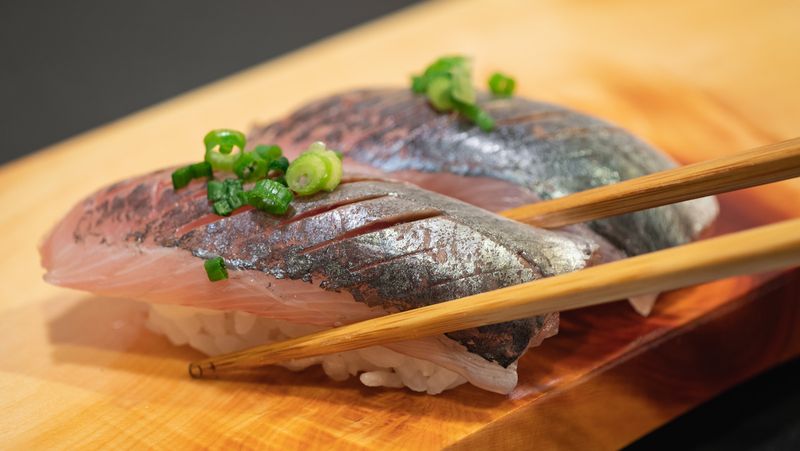
Fast-growing fish that reproduce quickly, making them highly sustainable. The strong, distinctive flavor offers a break from milder sushi options.
Usually served slightly pickled (as saba) to balance its rich, oily texture. Packed with omega-3s, vitamin D, and B vitamins that support brain health.
15. Fish To Enjoy: Farmed Scallops
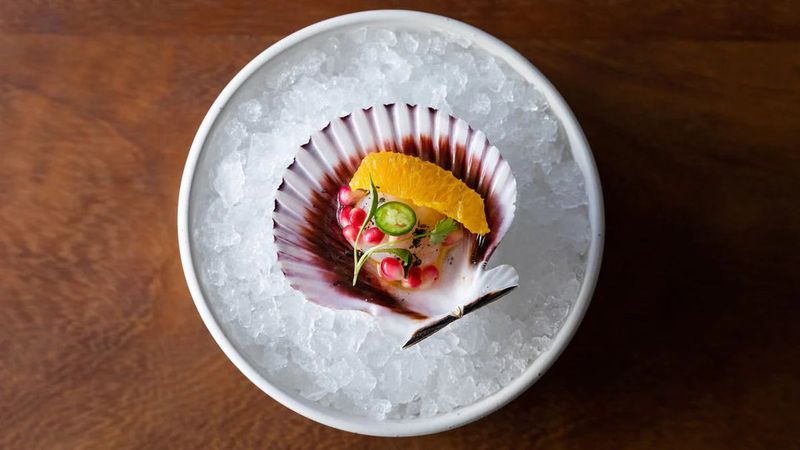
Filter feeders that actually clean the water they’re grown in! Farming requires no feed input, making scallops one of the most eco-friendly seafood choices.
Sweet, buttery flavor with a tender texture that melts in your mouth. Often served as nigiri with just a touch of lemon and salt to highlight their natural sweetness.
16. Fish To Enjoy: Farmed Barramundi
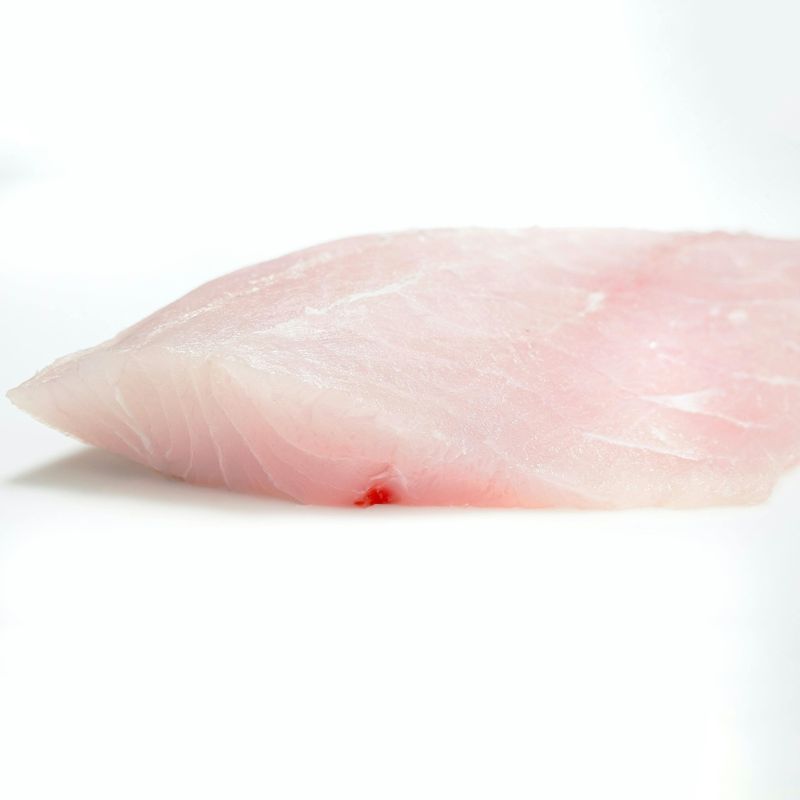
Called the “perfect aquaculture fish” by environmentalists. US-farmed barramundi are raised in closed systems that prevent pollution and escapes.
Converts feed to flesh more efficiently than most farmed fish. The buttery, mild flavor works beautifully in sushi, especially with light, citrusy toppings.
17. Fish To Enjoy: Skipjack Tuna
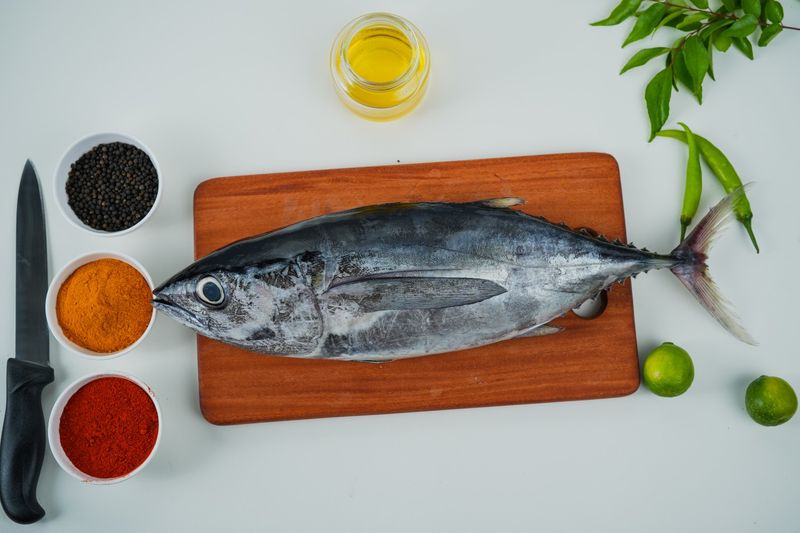
Smallest commercial tuna species with the fastest reproduction rate. Populations remain strong despite being the most common tuna in canned products.
Lower on the food chain means less mercury accumulation. The dark, flavorful meat is often used for spicy tuna rolls and other popular sushi items.
18. Fish To Enjoy: Freshwater Eel Alternatives

Try catfish or tilapia prepared unagi-style instead of endangered eel. These sustainable freshwater fish absorb the same sweet kabayaki sauce wonderfully.
Farmed in the US under strict environmental standards. The flaky white flesh holds up well to grilling and glazing.

